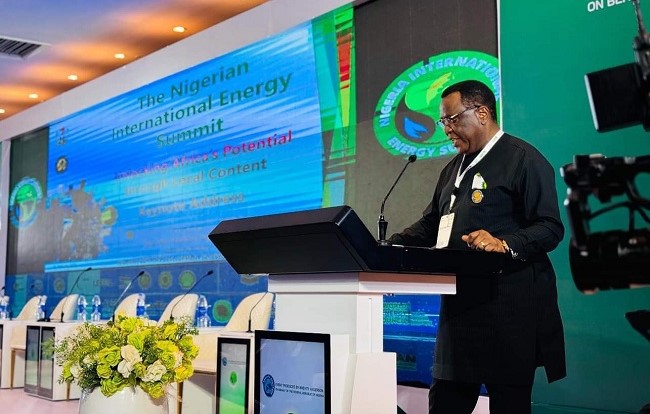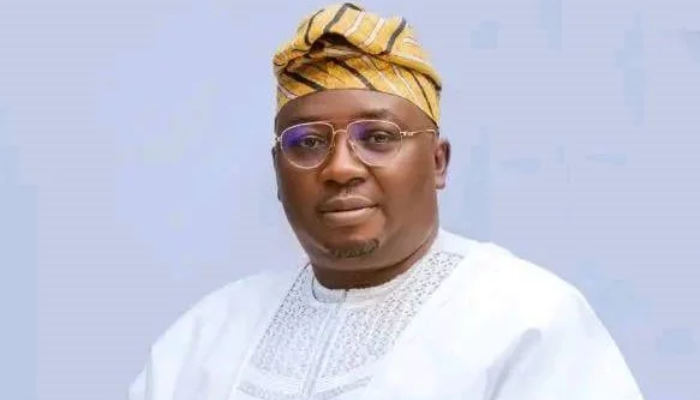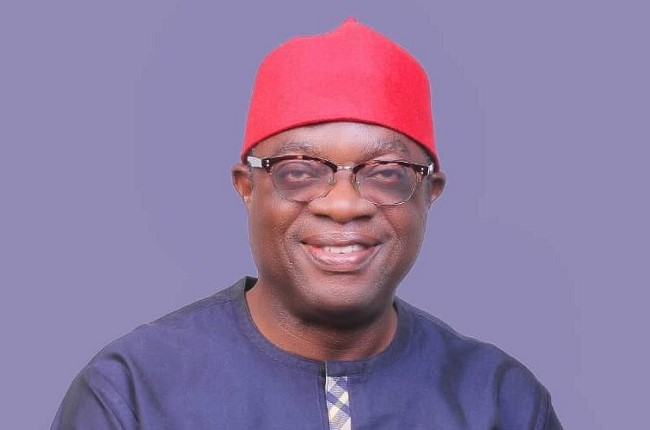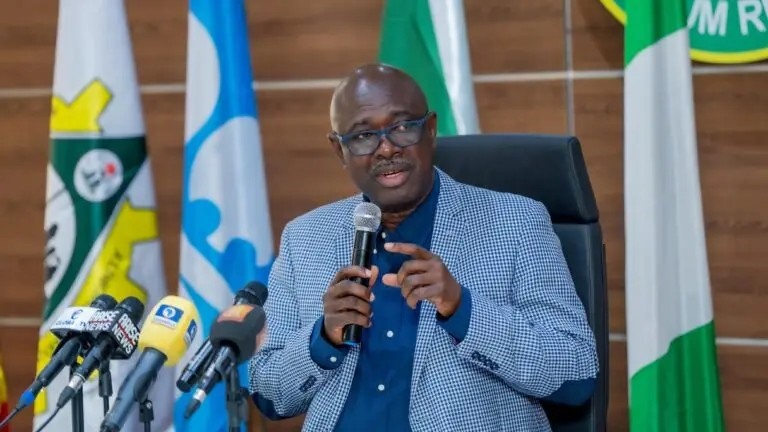The Executive Secretary of the Nigerian Content Development and Monitoring Board (NCDMB), Felix Omatsola Ogbe, on Tuesday, February 25, 2025, in Abuja charged oil and gas industry stakeholders in Africa to institute an Africa-wide local content framework that harmonises policies and fosters cross-border partnerships.

He said such a framework would allow African nations to leverage collective strengths for mutual prosperity, while emphasising that “local content is not just a policy – it is a strategy for sustainable economic growth.” In his words, it is “the foundation of economic transformation and energy security across Africa.”
In a Keynote Address entitled “Unlocking Africa’s Potential through Local Content: Policies, Partnerships, and Progress” delivered at the Nigerian International Energy Summit (NIES 2025), the NCDMB boss said, “The African Continental Free Trade Area (AfCFTA) presents an opportunity to position local content as a driver of continental industrialisation.”
He drew attention to the critical role of policies, partnerships, and progress in unlocking Africa’s vast energy potential, noting that, “Across our continent, we are blessed with abundant natural resources, yet the true measure of wealth lies not in extraction but how we harness, retain, and multiply value within our economies.”
According to him, “Unlocking Africa’s potential through local content requires unwavering commitment to capacity building, policy refinement, and strategic partnerships,” just as the energy transition across the world and the dynamic global market dictate that African nations remain resolute in their efforts to maximise local value addition.
He assured stakeholders that “NCDMB remains committed to working with our African counterparts to share best practices, co-develop industrial hubs, and create synergies that benefit the wider energy landscape.”
Commenting on new investments, the Executive Secretary commended President Bola Ahmed Tinubu for signing the Executive Orders, which made Nigeria Africa’s top destination for oil and gas sector investments.
He noted that the Executive Order reduced the contracting cycle for oil and gas projects from 36 months to six months. “This directive sped up project approvals and removed bureaucratic delays. It has also boosted investor confidence and accelerated project execution.”
The NCDMB boss added that the Executive Orders led to four Final Investment Decisions (FID) within a year.
Throwing light on Nigeria’s experience in local content development, Ogbe said, “By maximising local participation in the oil and gas value chain, we have created jobs and enhanced economic development,” adding, “We have demonstrated how capacity building, policy refinement, and joint partnerships can create a thriving, self-sustaining oil and gas ecosystem.”
The NCDMB, which he described as “Nigeria’s pre-eminent local content regulator,” has thus far prioritised development of indigenous skills, asset and equipment ownership, and local manufacturing capabilities. To support the above-mentioned priorities, the Board has in place a number of initiatives, such as the Nigerian Content Intervention Fund (NCIF) to provide affordable financing to support indigenous businesses in acquiring assets, expanding opertions, and delivering world-class services, he added.
The NCDMB boss also highlighted the Board’s Human Capacity Development (HCD) programmes, which continue to train thousands of Nigerians in specialised skills that align with industry needs, and the Project 100 Initiative, which targets capacity development for indigenous service companies some of which have become big-time industry players operating across international boundaries.
The Board, according to Ogbe, is developing Nigerian oil and gas industrial parks across seven locations in the country to provide infrastructure for the manufacturing of equipment, components, and spare parts to serve local and regional markets. Major construction work at the sites is expected to be completed at the end of the year, and interested investors in manufacturing are called upon to contact the Board for allocation of plots for development in the parks.
Among policy instruments and other initiatives of the NCDMB highlighted were the Nigerian Content Equipment Certificate (NCEC), which seeks to drive the growth of in-country value addition in the oil and gas industry through ownership of equipment and facilities, and the Marine Vessel Categorisation Implementation Strategy, which has yielded appreciable results with marine vessel ownership by indigenous companies growing from less than eight per cent in 2010 to more than 60 per cent presently.









